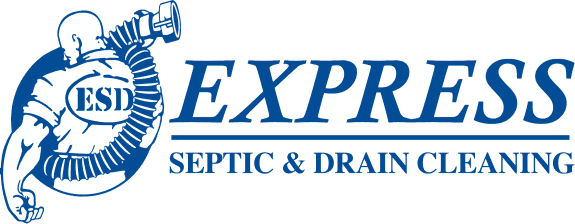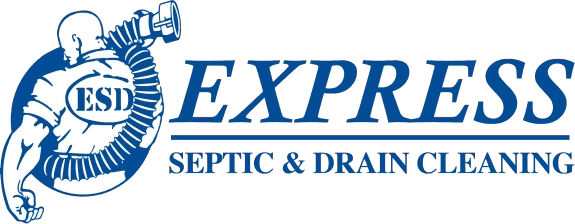A clogged drain is a frustrating nuisance. However, when it keeps happening, it’s often a sign of a deeper issue. Whether it’s due to stubborn buildup, tree root invasion, or improperly installed pipes, understanding the source helps pinpoint the problem and stop it for good. Learn about the common causes of recurring clogs, how to prevent drain clogs for good, and when it’s time to contact the expert plumbers at Express Septic.
Understanding Why Clogs Keep Coming Back
The occasional drain clog isn’t uncommon, but recurring blockages often indicate a bigger issue. Understanding the warning signals and common causes of recurring plumbing clogs helps you take action and address the problem to prevent further damage to your system.
What causes recurrent drain clogs?
If your drains keep clogging, a few common issues could be to blame. Some of the top causes of clogged pipes include:
- Grease and food buildup in kitchen sinks.
- Hair, soap scum, and hygiene products blocking bathroom drains.
- Non-flushable items like wipes, paper towels, and feminine products.
- Tree roots infiltrating sewer lines and causing obstructions.
- Aging, corroding, or improperly installed pipes trapping debris.
- Hard water mineral buildup that gradually reduces the pipe diameter.
How to identify a chronic clogging problem
If clogs keep returning after you clear them, you might be dealing with a chronic issue. The top signs to watch out for that signal a more persistent problem include:
- Slow-moving drains: If your sinks, tubs, and showers drain slowly even after cleaning, a severe clog or blockage is likely limiting water flow.
- Gurgling noises: Strange gurgling or bubbling noises from your drains often indicate trapped air due to a clog.
- Water backups: Water repeatedly backing up into the same sink, tub, or toilet is likely an indicator of an ongoing obstruction.
- Frequent plunging: If you’re constantly reaching for the plunger or drain cleaner, there’s likely a deeper issue within your plumbing.
DIY Methods to Prevent Frequent Drain Clogs
Taking preventative action is the best way to avoid recurring drain clogs. With a few simple habits, you’ll keep your plumbing flowing smoothly and avoid costly repairs.
Best practices for keeping your drains clear
Drain clogs are frustrating and costly, but here are some simple habits to keep your drains clear:
- Use drain stoppers to catch hair and debris before they enter the drain.
- Dispose of grease and food waste in the garbage rather than the sink.
- Flush drains regularly with hot water, baking soda, and vinegar.
- Avoid flushing non-flushable items like wipes, paper towels, and other clogging materials.
- Limit the use of chemical drain cleaners to prevent pipe damage.
Routine DIY drain maintenance tips
Creating a maintenance routine keeps your pipes in top condition and minimizes the risk of recurring blockages or other plumbing problems. Take the following steps to keep your pipes clog-free:
- Every week: Flush your drains with hot water and a few drops of dish soap to break down buildup and push residue through your pipes.
- Monthly: Use an enzyme-based drain cleaner to break down organic material and prevent buildup.
- As needed: If you notice signs of a clog, use a plumbing snake to clear the obstruction and restore water flow. You can also pour a mixture of baking soda and vinegar down your drain to clear debris and stop the blockage from worsening.
When To Call a Professional Plumber for Recurring Clogs
While you can often clear minor clogs with plungers and snakes, severe blockages require the help of plumbing professionals.
Signs you need professional drain cleaning
If DIY methods aren’t doing the trick, it might be time to consider calling for help. Here are some signs your drain clog requires expert attention:
- Multiple clogged drains: If more than one drain in your home is slow or backing up, there’s likely a deeper issue within your plumbing system or sewer line that requires inspection.
- Sewage smells: Foul odors and sewage smells throughout your home often indicate a severe blockage or buildup that needs professional cleaning.
- Slow drainage: If plunging and drain cleaners don’t get water flowing again, you may be dealing with a deeper clog that requires specialized tools.
- Frequent toilet backups or overflows: If your toilet constantly clogs, there may be a blockage in the main sewer line.
- Standing water around floor drains: Water pooling around basement or utility room floor drains is often a sign of a major blockage in your system.
How rooter services solve persistent clog issues
When clogs keep coming back, it’s often a sign of a deeper problem in your plumbing system. Professional rooter services help identify the source of the clog and clear it to restore proper drainage.
Septic companies like Express Septic use a waterproof camera to locate and pinpoint the nature of the clog. These cameras navigate through your pipes to identify damage without digging up your property. After identifying the source of the issue, our plumbers use specialized tools to clear the blockage using these methods:
- Drain snaking: Plumbers insert a flexible cable deep into your pipes to clear minor blockages.
- Hydro jetting: Large, powerful machines blast water through your pipes to flush out buildup and clear stubborn clogs.
- Trenchless sewer repair: For blockages deep within your sewer line, plumbers use non-invasive sewer repair techniques to repair your plumbing without excavation.
Long-Term Plumbing Solutions for Clog Prevention
With long-term plumbing upgrades and routine maintenance, you can keep your drains clear and avoid blockages for years to come.
Upgrading your plumbing system
Over time, wear and tear can take a toll on your plumbing system, making it more susceptible to clogs and blockages. Investing in plumbing upgrades can reduce the risk of plumbing problems and costly repairs. Here are some improvements to consider:
- Upgrade old, corroded pipes to PVC or PEX for added durability, corrosion resistance, and improved efficiency.
- Check and adjust the angle of your pipes to keep water flowing freely and prevent debris from settling.
- Install a backwater valve to prevent wastewater from flowing back into your home and protect your property from flooding and contamination.
- Clear landscaping near your drain field to prevent root intrusion and drainage issues.
Scheduling preventative maintenance for your drains
Professional drain maintenance is the most effective way to prevent clogs and keep your plumbing system flowing. Contact Express Septic once a year to schedule a drain cleaning and inspection. We’ll remove buildup, check for underlying issues, and keep your drains functioning properly. Don’t forget to ask about our limited-time specials and flexible financing plans to help you save on septic services.
Routine sewer line inspections also help identify hidden issues, such as cracks, clogs, and septic freezing, to prevent major plumbing repairs. If your home has a history of recurring clogs, consider adding hydro jetting services every two to three years to clear stubborn grease, sludge, and debris from your pipes.
Contact Express Septic To Keep Your Plumbing System Free of Recurrent Clogs
Stop your clogs from coming back with plumbing services from Express Septic. We’ll pinpoint the source of your recurring clogs to clear your plumbing system and get things flowing smoothly again. Whether it’s a stubborn blockage or deeper plumbing issue, we have the tools and expertise to provide a long-term solution. Contact us to schedule sewer repair in Boise or surrounding areas today!



